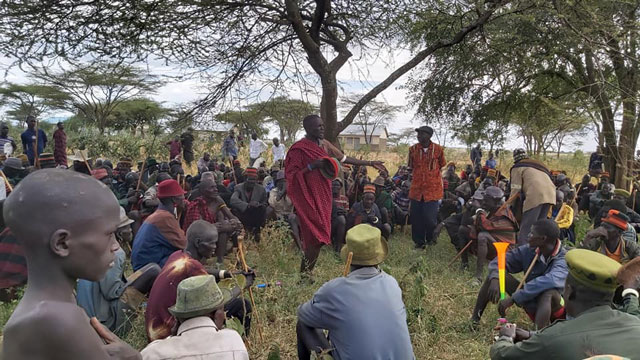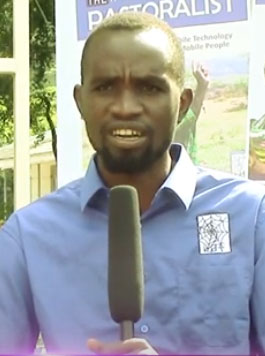
COMMENT | Simon Peter Longoli | The year 2020 has already presented us with a stream of disasters, especially in the northeastern part of Uganda. Notable among these have been the credible risk of resurgence of livestock theft and rustling, the locust crisis and the biggest of them all – the COVID19 pandemic.
At least to Karamojong ears, the insecurity problem is a disaster wrought by ourselves and upon ourselves, enabled in part by a longstanding duel with the state in which political, economic and security questions have been left unresolved.
Livestock-related security problems had persisted in Karamoja for the latter half of 2019. In February 2020 the first swarms of locusts ‘arrived’ in Uganda through Karamoja, mostly remaining there save for a few districts in eastern and northern Uganda. A second ‘arrival’ of more dangerous swarms in April has shown us that the locust disaster is far from over, with another round expected in May and June.
In March 2020, Uganda confirmed its first case of COVID19, prompting nation-wide mitigation action. The global pandemic understandably shot up in terms of priority. Attention, and the already meagre resources got redirected.
Since March, interventions in the front of ensuring human security especially in the north of Karamoja have been impeded because of necessary COVID19 action. Cattle-related conflicts, initially brought to a manageable state have increased because social distancing rules cannot make dialogue possible.
While Uganda has paid up its arrears to the Desert Locusts Control Organisation to the tune of US$ 3 million, it has spent some 23 billion UGX to fight against desert locusts largely through the army. Whereas this is commendable, the use of the army gets these resources farther from the public eye, leaving experts in the districts unfunded.
As estimated by the World Bank, some 80 million hectares of crop and pastureland worth about US$ 9 billion will be destroyed across eastern and the horn of Africa, especially in Ethiopia, Sudan, Kenya and Somalia. The estimates indicate that Uganda could lose nearly US$ 800 million in livestock asset damage, livestock production losses and staple crop production losses.
What would have been an opportunity to mobilise preventive and management action against locusts has been weakened by our response to COVID19. This is further exacerbated by the security problem in Karamoja that has significantly been concerning in the last year, effectively relegating this locust outbreak to the periphery.
The World Health Organisation has warned Africa will be the next epicentre of the COVID19 pandemic, owing to poor health infrastructure and poverty among others. Since it is clear food security, next to healthcare, will be a pillar in the fight against COVID19, then our ability in the East African region to ward off greater losses against the desert locust outbreak should be even more decisive. All indicators are that the fight against COVID19 is a marathon rather than a sprint. We’ll need food to manage this fight in the medium to the long term.
As our nation comes face to face with COVID19 in our communities and health care facilities, it is clear that preventive action hinges on our ability to put food on the table – to provide nutrition to boost immunity, keep people home and maintain the #SocialDistance. This is where the fight against locusts becomes important.
What this means is that local actors’ coordination and intervention capacities to detect, prevent and manage desert locust invasions in a timely manner need investment. If the next swarms will be 400 times bigger than the last, as anticipated by scientists, then we must have requisite capacity to deal with this.
Economists have predicted Africa’s first recession in 25 years. A famine across East and the Horn of Africa caused by desert locusts could further define the nature of that slump.
The COVID19 disaster affects us all. In eastern and northern Uganda we directly face a double crisis – COVID19 and desert locusts as an additional ‘crisis in a crisis’. In Karamoja we are up against a triple disaster – livestock-related conflicts, COVID19 and the desert locusts. Action must focus on all.
*****
 Simon Peter Longoli is the Executive Director of Karamoja Development Forum, a pastoralist research and advocacy non-governmental organisation based in Moroto, Uganda. longolisimon@gmail.com
Simon Peter Longoli is the Executive Director of Karamoja Development Forum, a pastoralist research and advocacy non-governmental organisation based in Moroto, Uganda. longolisimon@gmail.com
 The Independent Uganda: You get the Truth we Pay the Price
The Independent Uganda: You get the Truth we Pay the Price




Interesting piece indeed! The triple disaster faced by karamoja should be seriously looked into by government and given special priority. Karamoja falls way behind other regions in terms of food security and these triple disaster will only worsen the situation.
Indeed it is a tripple disaster for Karamoja and unfortunately there is not much to do except wait for fate. Insecurity, Locusts (famine), COVID19 all end up in taking lives.